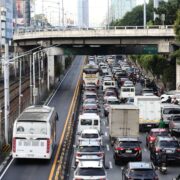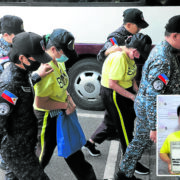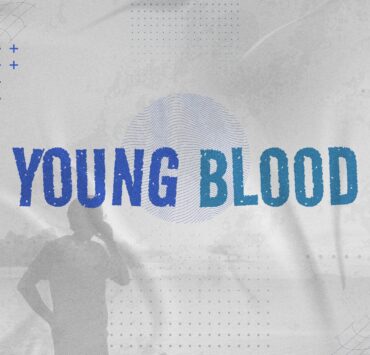The case of unregistered Filipinos

Since 1930, when we enacted the Civil Registry Law, it’s been a requirement to register vital events such as births, deaths, marriages, annulments, divorces, legitimations, adoptions, acknowledgments of natural children, naturalizations, and name changes.
Still, 3.7 million Filipinos have no birth certificate—almost 40 percent of them children.
To be unregistered at birth means being consigned to live in the shadows: being legally invisible and having no proof of identity. Unregistered children can’t go to school, access health services, get a passport, exercise the right to vote, or enjoy any of the government’s social protection programs.
This invisibility is inherited, systemic, and generational—especially among the indigenous peoples, people in Muslim communities, internally displaced persons, people living in conflict zones, street children, unmarried or teenage mothers and their children, nomadic and migrant population, and people in geographically isolated and disadvantaged areas (GIDAs). Denied their rights, they’re left out of every safety net the government claims to provide.
Take the case of Jolimil, the only child of street vendors, Valentin and Shirley. They were unable to register his birth as the civil registrar had insisted they get married first, which would cost them at least P30,000—which they couldn’t afford. Instead, they secured an “Affidavit of Surname to Use”—the only document Jolimil had for school enrollment and for the entire time he was in school.
Meanwhile, the United Nations High Commissioner for Refugees reported that in Zamboanga, Arsida Basari, a member of the Sama Badjao, tried but failed to enroll her daughter in elementary school because she lacked a birth certificate. It’s a harsh reality for the Sama Badjao community—shut out of school, work, and basic health care because they lack a single document.
These aren’t isolated cases. Data suggest that thousands of births are unregistered every year. The cost of delayed registration—which includes transportation, affidavits, and other documents—can run up to P1,700, unaffordable, especially for poor families.
Even worse, fake birth certificates are sold openly, as seen in the case of former Bamban, Tarlac mayor Alice Guo whose fake passport was eventually canceled. The Philippine Statistics Authority (PSA) reported that 1,733 foreign nationals—mostly Chinese—had falsified birth certificates to acquire Philippine citizenship and with it, passports and the right to own properties in the country.
With this broken system denying people their rights and being a national security threat, the House finally consolidated three bills to modernize the civil registration and vital statistics system. It mandates free, universal registration of births, deaths, and marriages, aligned with international human rights standards.
In the Senate are three proposals: Senate Bill 371 by Risa Hontiveros, Senate Bill 2885 by Jinggoy Estrada, and Senate Bill 2914 by Win Gatchalian. Gatchalian’s bill proposes the most comprehensive version—free first-time registration, mobile registration units, digital record-keeping, and automatic assignment of PhilSys ID numbers at birth.
As these bills move toward consolidation, four nonnegotiables should guide the final bill:
First, bring the services to where they’re needed. Asking people to visit the municipal hall with stacks of documents just doesn’t work. The barangay civil registration system enables local government units (LGUs) to offer mobile registration, particularly for individuals residing in GIDAs and informal settlements.
Second, fix the way we record deaths. The medical certificate cause of death is often inaccurate and incomplete. National and local data frequently diverge. This is more than a bureaucratic glitch—it distorts public health planning, delays responses to disease outbreaks, and hides preventable deaths. The bill mandates national standards and training for doctors and health workers. If we don’t accurately count the dead, how can we protect the living?
Third, let’s strengthen the PSA. More than a technical mandate, the PSA needs teeth and reach. The bill proposes regional and field offices for civil registration to decentralize services, and a civil registration interagency cooperation committee to engage the health and interior and local government departments, the LGUs, and other agencies.
Fourth, digitalize and integrate. Digitizing transforms how government delivers. A digital and interoperable system enables agencies like PhilHealth, Department of Education, and Department of Social Welfare and Development to share and verify records in real time, reduce costs, fight fraud, cut red tape, enhance transparency, and deliver timely services. Without digital integration, no civil registration system can be truly universal, inclusive, or efficient.
Reforming the civil registration and vital statistics system isn’t just about making registries. It’s about making people visible—because if the state can’t see them, how can it serve them?
—————-
Marilen J. Danguilan, a medical doctor, is co-administrator of the Vicente Ludan Danguilan Memorial Clinic in Solano, Nueva Vizcaya. She is also an adviser to the Sasakawa Peace Foundation in Tokyo. Nenita B. Dalde, the director for National Advocacy and Partnerships of the Philippine Legislators’ committee on population and development, is leading the civil registration and vital statistics advocacy campaign in the Child Rights Network.

















